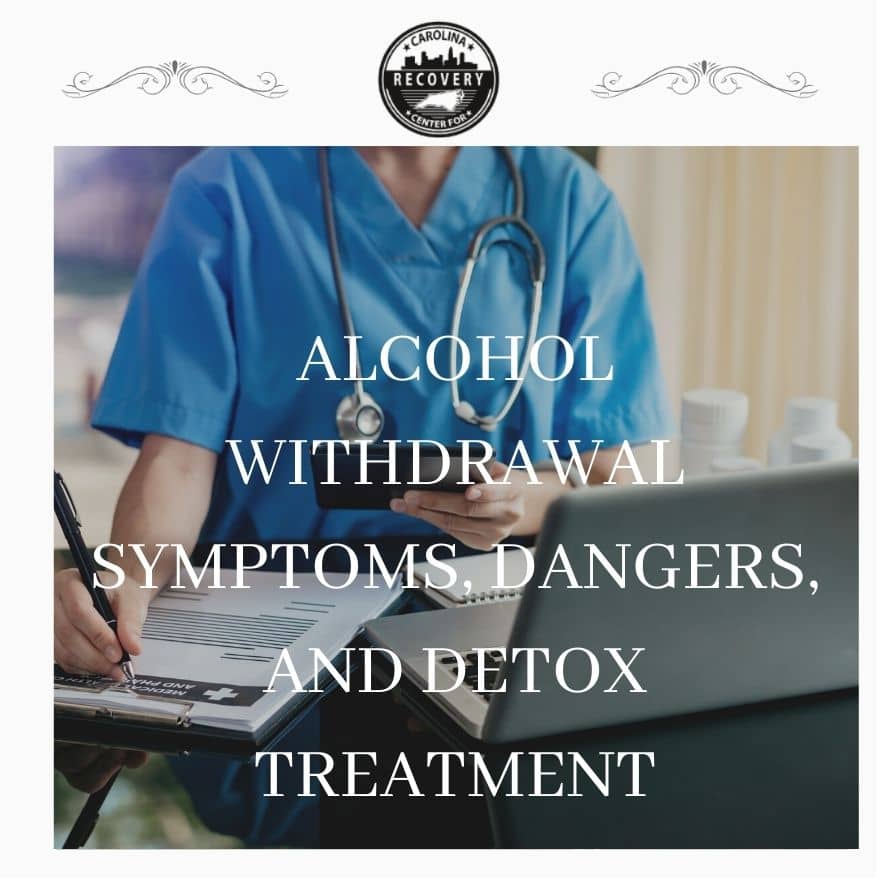Alcohol Withdrawal, Symptoms, and Detox Treatment

Medically Verified: 2/1/24
Medical Reviewer
Chief Editor

All of the information on this page has been reviewed and verified by a certified addiction professional.
Alcohol abuse is common in the United States. Some estimates suggest that up to 10% of men and 5% of women in the US live with an alcohol abuse disorder.[1]
Alcohol withdrawal occurs when a person who drinks a lot suddenly stops drinking. Uncomfortable, sometimes life-threatening symptoms develop and can push people to continue drinking. This cycle makes it very challenging for some people to stop drinking, even when faced with severe consequences of their alcohol abuse.
Understanding the stages of alcohol withdrawal can help you stay motivated during the detox process so that you can safely stop drinking. Finding a detox program and comprehensive treatment program will help you avoid the dangers of alcohol withdrawal and give you the skills and support you have to maintain lifelong sobriety.
Understanding Alcohol Abuse
The Centers for Disease Control (CDC) has guidelines for moderate drinking. Moderate drinking is not associated with any known, long-term harm to a person’s health.
The CDC guidelines for what counts as an alcoholic drink are as follows:
- 5 ounces of wine
- 12 ounces of beer
- 1.5 ounces of distilled spirits like vodka, whiskey, or rum
- 8 ounces of malt liquor
The CDC defines moderate drinking as one or fewer alcoholic drinks per day for women and two or fewer daily drinks for men.[2] The CDC defines heavy drinking as drinking more than recommended during a week–meaning more than seven weekly drinks for women and more than 15 for men.
Alcohol abuse means drinking more than the CDC recommends. Abusing alcohol for a prolonged period may lead to alcohol addiction–sometimes known as alcoholism. Alcoholism is a severe, complex condition that requires professional treatment and lifelong support.
What Happens During Alcohol Withdrawal?
After a prolonged period of heavy or frequent drinking, a person’s body can develop a dependence on alcohol. Without it, their body cannot function normally, and they will experience various physical and emotional symptoms. This is called going through alcohol withdrawal.
Symptoms of alcohol withdrawal include:[3]
- Tremors (shaking)
- Nausea
- Sweating
- Anxiety
- Irritability
- Fatigue
- Body aches
- Headache
Alcohol withdrawal symptoms are often so uncomfortable that people relapse–meaning they begin drinking again. Many of the common symptoms of alcohol withdrawal are uncomfortable. But some people develop severe, sometimes life-threatening complications during withdrawal.
The Dangers of Alcohol Withdrawal
Certain risk factors increase the likelihood that someone will experience dangerous withdrawal symptoms, but anyone who stops drinking after a period of alcohol abuse can develop complications. The possibility of developing severe withdrawal symptoms makes it critical for everyone–regardless of risk factors–to seek treatment in a medically-supported detox program.
Some of the dangers of alcohol withdrawal include:
- Seizures
- Confusion
- Excessive vomiting
- Dehydration
- Dangerously high blood pressure
One of the most severe complications of alcohol withdrawal is a rare, deadly condition called Delirium Tremens. Only about 5% of people with alcohol withdrawal develop Delirium Tremens, but it is often fatal.
The symptoms of Delirium Tremens include:[4]
- Dangerously elevated body temperature
- Elevated heart rate
- Hallucinations
- Delusions
- Confusion
- Agitation
- Shaking
- Seizures
Delirium Tremens is a life-threatening medical emergency. People who develop DTs during alcohol withdrawal require immediate medical treatment to avoid severe physical harm or death. The only proven way of preventing Delirium Tremens is by detoxing under medical supervision.
Managing alcohol withdrawal symptoms alone is challenging, and most people who attempt to do so are unsuccessful. A medically-supervised detox center can help you get through detox safely so you can continue your recovery journey on the right foot.
Can I Manage Alcohol Withdrawal Without Treatment?
Some people may attempt to detox by themselves or go “cold turkey,” but very few successfully achieve a safe, complete detox.
The American Society of Addiction Medicine (ASAM) warns certain groups of people should never attempt to detox from alcohol on their own, including:
- People with co-occurring mental health disorders
- Those who use other drugs
- Those with a history of alcohol withdrawal
- Anyone with a history of developing Delirium Tremens
- People who have had seizures
- People with medical conditions
While people in those groups must seek medically-supervised detox to avoid life-threatening complications, anyone can benefit from the supervision and support these programs provide.
Detox Without The Dangers of Alcohol Withdrawal
Going through alcohol withdrawal in a detox center can give you the best possible chance of having a safe, complete detox from alcohol. During your time in detox, medical and support professionals will assess and treat your alcohol withdrawal symptoms to keep you safe and comfortable throughout the process.
Your treatment plan may include the following:
- Physical distance from alcohol and other triggers
- Medications to treat physical and emotional withdrawal symptoms
- Holistic therapies to comfort and soothe your body and mind
- Emotional support from compassionate professionals
- Accountability and encouragement
With the proper support and treatments, you can have a safe, comfortable detox that will prepare you to begin a comprehensive alcohol abuse treatment program afterward.
Find Treatment Now
Avoid the dangers of alcohol withdrawal and experience a safe, comfortable detox. Reach out to the caring specialists at the Carolina Center for Recovery today to get started.
References:

